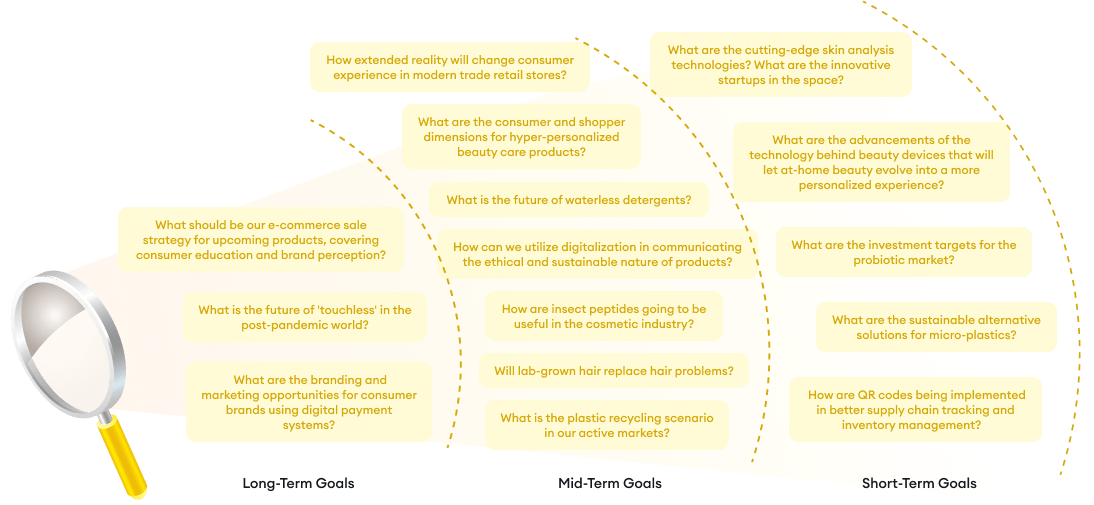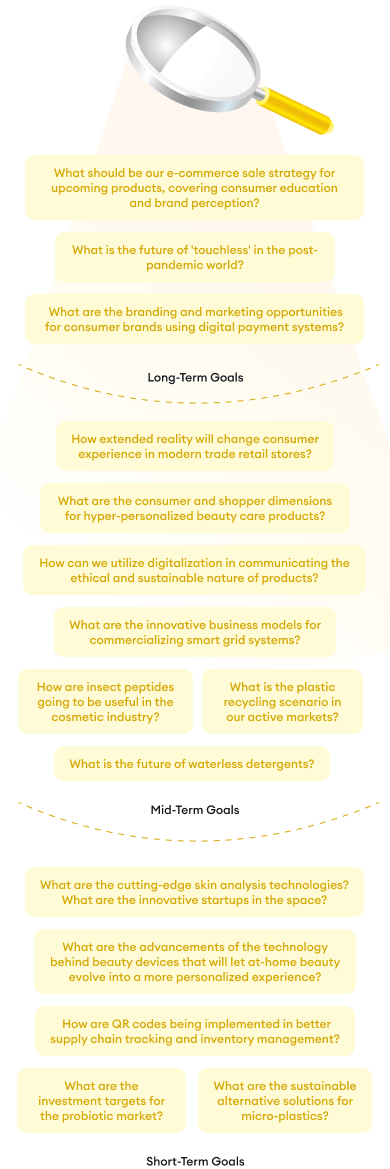Next Generation Personal Care
The FMCG industry has transformed over the years with digitalization enabling the customization of products to suit an individual’s needs and sustainability shaping its future.
With the growing demand for personalization in both e-commerce and physical stores, businesses are adopting the strategy to involve customers in the co-creation of customizable products tailored to an individual’s requirements. Partners are now scouting innovative technologies that enable products to adapt to an individual’s characteristics.
With the growing adoption of open banking statements, consumers are taking a step towards intelligent money management. Emerging digital trends in FMCG such as remote access, smart wearables for tracking whereabouts, wealth management apps, biometrics, and face-ID app login have enhanced the way of living.
Along with personalization and digitalization, businesses must also cater to the consumer’s growing post-pandemic environmental awareness. Scaling the business and expanding the product portfolio must accompany a sustainable roadmap to reduce the carbon footprint through circular economy, zero-waste manufacturing, and revalorizing by-products.









